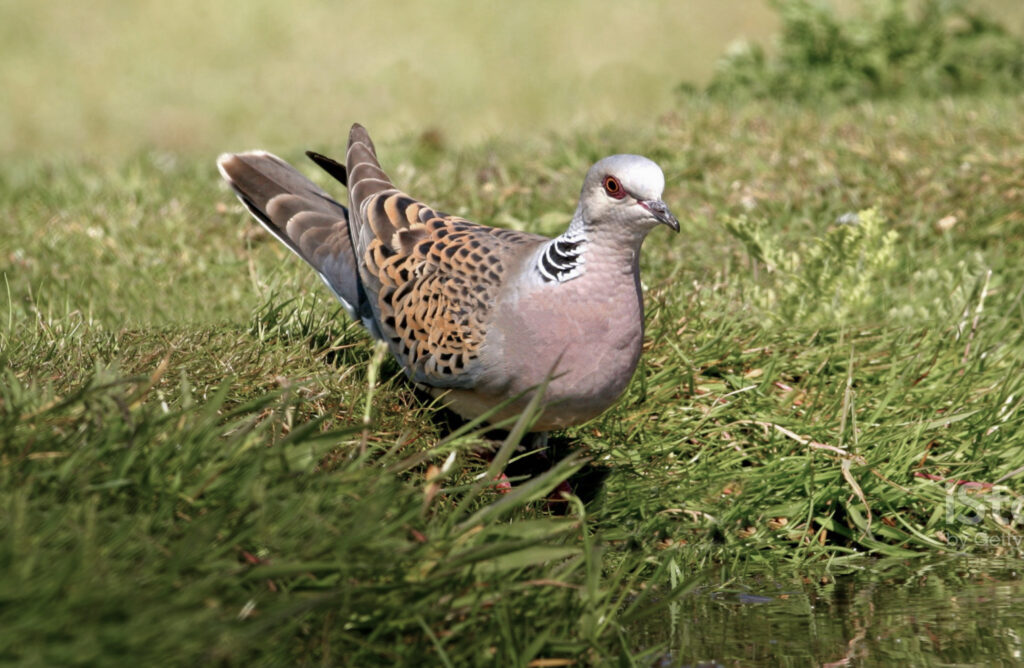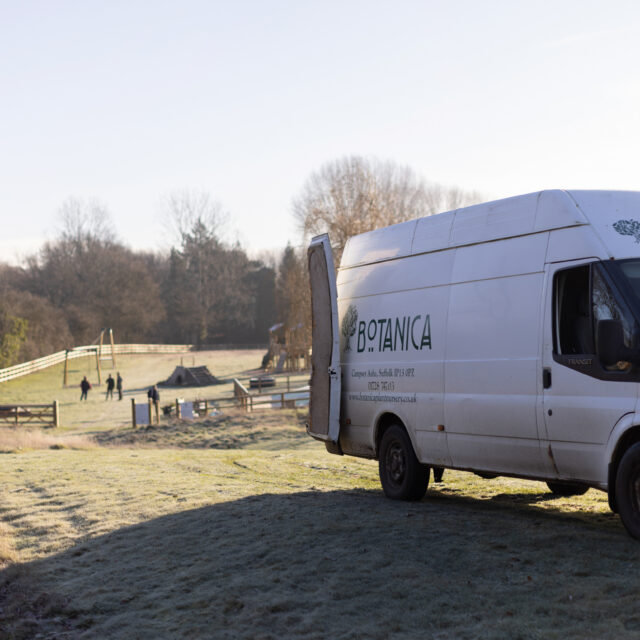The gentle purring of the turtle dove was once a sound synonymous with the English summer. Suffolk is one of the last strongholds of this once common, but now critically endangered, migratory bird. One of our big ambitions this year is to see their return to the Kingfishers landscape. Considering the precipitous decline of turtle doves in the UK, with an estimated loss of 96% since 1970, this might seem a bit optimistic. But Suffolk is currently home to an estimated 17% of the British turtle dove population, and Kingfisher’s open meadows, tall hedges and many ponds could provide perfect habitat for them.
A tremendous conservation effort is currently underway to save this emblematic bird; and we’re consulting with Eliza Leat from the RSPB who is looking after the Suffolk branch of ‘Operation Turtle Dove’ which can be found at www.operationturtledove.org Eliza is advising us on what interventions are needed to make our land a perfect destination for this summer visitor.
Turtle doves are a classic farmland bird, thriving amongst open land and dense hedges, and feeding on the seeds from arable weeds. Modern agriculture has all but eradicated these plants, and the switch to herbicides for weed control, rather than ploughing, is further compounding the problem. At Kingfishers we won’t be using any herbicides, but arable weeds thrive in disrupted landscapes and our plan is based on not disrupting the natural landscape! So we may have to look at making interventions that create feeding plots of bare, or broken, soil, such as using a harrow to break the surface. These sort of marginal areas are exactly the kind of places where wildflowers thrive, and the areas of bare soil amongst the plants allow the doves to find the seeds.
Turtle doves also need suitable nest sites, such as high, dense, thorn hedges, or scrubby thickets. We have suitable areas but they may benefit from maintenance and supplementary planting to thicken them up. Ideally nesting sites are located close by both the feeding plots, and water sources. Fortunately we are endowed with a number of perfect ponds that have at least one gently-sloping side, free from cover, so the birds can safely drink at the water’s edge without being surprised by predators.
We have faith that the Field of Dreams saying ‘If you build it, they will come’ will apply to any efforts we make to encourage the doves, but the good news is that any of this work will benefit many other species even if the turtle doves don’t turn up! We will, of course, keep you updated of any turtle dove news; please keep an eye on our instagram.

